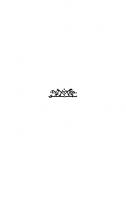Exclusus Amator: A Study in Latin Love Poetry
341 81 5MB
English Pages 176 [91] Year 1956
Recommend Papers

- Author / Uploaded
- Frank Olin Copley
File loading please wait...
Citation preview
PHILOLOGICAL MONOGRAPHS PUBLISHED BY THE
AMERICAN PI-IILOLOGICAL ASSOCIA.TION
EXCLUSUS AMATOR A STUDY IN LATIN LOVE POETRY
NUMBER XVII BY
FRANK 0. COPLEY EDITED BY
UNIVERSITY OF MICHIGAN
FRANCIS R. WALTON FLORIDA STATE UNIVERSITY
PUBLISHED BY THE AMERICAN PHILOLOGICAL ASSOCIATION COMMITTEE ON THE PUBLICATION OF MONOGRAPHS WALTER ALLEN, JR. CHAIRMAN ROBERT JOHN GETTY MALCOLM FRANCIS McGREGOR BERNARD MANN PEEBLES JOHN BRADFORD TITCHENER
1956 TO BE ORDERED THROUGH THE SECRETARY OF THE ASSOCIATION
PROF. PAUL MAcKENDRICK, UNIVERSITY OF WISCONSIN' MADISON 6' WISCONSIN OR THROUGH
B. H. BLACKWELL, LTD., 50 BROAD ST., OXFORD, ENGLAND
I
The Greek Paraclausithyron General Characteristics The paraclausithyron is the song sung by the lover at his mistress's door,1 after he has been refused admission to her house. Like so much of ancient love poetry, it is usually a lament, a song of disappointment a:µd sorrow. It is based upon a more or less stereotyped incident. The lover has been 1+t 1a symposium where he has engaged in drinking; now, warmed. with wine, he goes to �'e'el;.:"out the girl by whose beauty and charm he has been attracted. Somewhat i"na�dli�, ·a garland on his head, he takes up a torch; and either :�lone or in the company of, .a friend or two goes through the streets to the girl's house. He knocks at tl'fe door, begs for admission, and finds that he has been lock�d out. He pleads and threatens, but to .Il.P. �ffect. Then he sings his ,s�mg, in wpich he may corn• /. ', , -· \ j {l,�.1,.........,:-" bine a plea that the girl will yet relenti/:!1, warning of the lonely days t�··come, when she wil} be too old £or love,1t protestation a ainst her cruelty, a�d a gJcture of his own sufferings. �o:rr1.e--. _ � . . :5 times he threatens smc1de.Gin the end he may hang his gar land on her door,pr th\��w it at the threshold; somet���� he scribbles on the door some scraps of verse. Then he lies down ,:1 in the doorway, there to remain until morning. It should be clear that the paraclausithyron is not a literary form. It has nothing in common with the rondeau or the sonnet. �t-��;r_appear _i_n _any genre tha� can have love as its subject: in the lyric, the idyll, the epigram, the elegy, the pastoral, the comedy, or the mime. It is a motif, theme, or story, rather than a £orm. As such it is subject to variation in · treatment, depending on the genre employed and}Iii inter�i'rt f9f the poet. It may be long, as in the elegy; or very brief, as in / 1lie-epigram; One or more of the details of the story may be omitted or ass�med, or some individual feature may be singled _, out and given special prominence. Under the circumstances it •
I
'
'
( 'f
2
- -
-- -
- - . .._ ---· .-
---
-
' -
-
--
,-
.
.
.
1
The Greek Paraclausithyron
Exclusus Amator is difficult, if not impossible, to find a paraclausithyron which preserves the motif complete in all its details. However, an examination of a few of the Hellenistic examples will show its nature and indicate how the poets handled it. An epigram of Asclepiades (A.P. 5; 167) 3 gives a fairly com plete picture, although certain of the details are only implied: 'Yml, 0v Kal pt,� Kal r6 rplrov /}),yo, /!.pwn o'lvo, · Kal Bopl71, tf;vxpo, lyc1 Be µ6vo,,
tiAA' o KaA6, Moaxo, 7r,\eop laxv€JI, "at cr0 yap OVTW, ij;\ve,, oi!8e 0vp71P 7rp6, µlav �avxcfaa,."
KOliJ,O,









